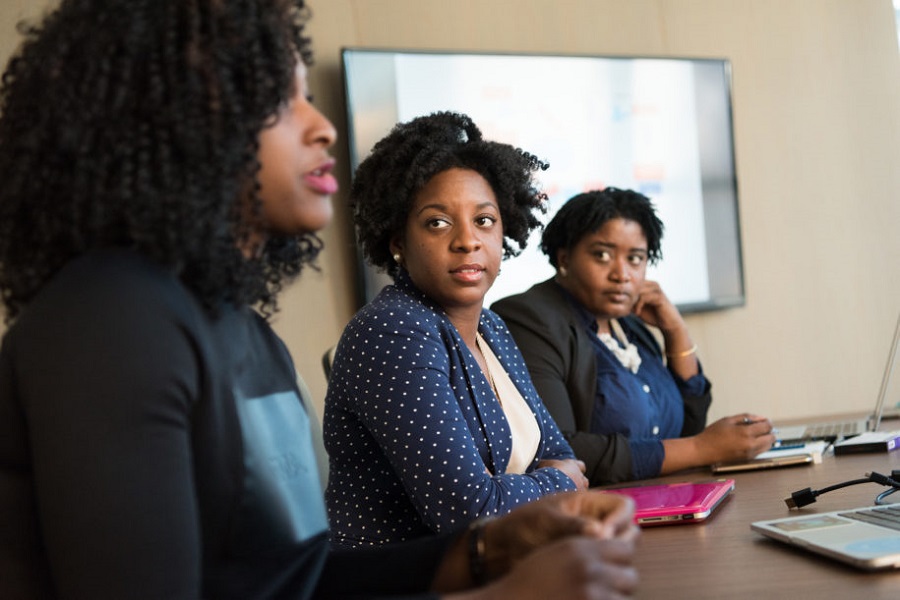In President Bola Tinubu’s pursuit of Nigeria’s $1 trillion economic ascent, the imperative for gender equality echoes not only as a moral necessity but as a strategic catalyst for prosperity.
Global insights reinforce this premise, showcasing that countries with gender equality tend to experience heightened prosperity. A report by The Council on Foreign Relations and Women’s Rights, ‘Growing Economies Through Gender Parity,’ had forecast an astounding 23% surge in Nigeria’s GDP, equivalent to $229 billion by 2025, if women participate in the economy at a level commensurate with men. The International Monetary Fund (IMF) reinforces this potential, recognizing gender equality as a transformative force, fostering elevated productivity and increased economic stability.
Edward Kallon, the resident humanitarian coordinator of the United Nations in Nigeria, succinctly articulates this reality, emphasizing that “There is no way Nigeria can develop without the full participation of women.” This conviction is grounded in the understanding that nearly half of Nigeria’s population comprises women, and the nation’s economic prowess remains untapped without their active engagement.
According to the World Bank, in Nigeria, the labor force participation rate among females was 52.1% and among males was 65.5% for 2022.
The labor force participation rate is the proportion of the population ages 15 and older that is economically active. Since 1990, female labor force participation has decreased.
The potential for increased productivity remains latent among many women who, if given the needed opportunities, would grow the economy.
A January 2024 report by the Global Entrepreneurship Monitor says globally, one in six women reported an intention to start a business soon. The highest entrepreneurial intention rates were observed in low-income countries, where approximately 28% of women expressed intentions to start a business.
Nigerian women top the list of intended entrepreneurs, signifying the potential to significantly boost the country’s GDP if provided with the right atmosphere. The economic landscape of Nigeria stands poised for transformative growth, and the active participation of women is the key to unlocking its full potential.
Nigerian women currently own 41% of micro-businesses in the country, with 23 million female entrepreneurs operating in this segment, according to PriceWaterhouseCooper (PWC). This places Nigeria among the highest entrepreneurship rates globally, surpassing the 21% global average.
A World Bank report shows that more Nigerian women wish they were in the labor market or involved in some business venture. Nevertheless, persistent societal and cultural barriers, which are accentuated in certain parts of the country, impede women’s progress in Nigeria. Challenges such as gender violence, limited access to education for female children, and prevalent slavery persist, creating hurdles for women to advance in education and vocational skills.
Then there is another factor that holds Nigeria’s GDP numbers down. Most of women’s traditional jobs are not captured in computing the GDP in Nigeria.
The Partnership for Advancing Women in Economic Development highlights the often-overlooked dimension of unpaid labor performed by women in Nigeria, primarily as domestic workers. Despite being vital for human well-being, this labor remains unaccounted for in GDP estimates. The low and irregular salaries, coupled with long hours and overwork, particularly in domestic and childcare, compound the challenges. Factors such as illiteracy, high unemployment, cultural norms, poor health, and poverty contribute to the high levels of unpaid labor among women.
The opportunity lies in recognizing that if unpaid jobs are regulated by the government and assigned monetary value, they could significantly contribute to Nigeria’s GDP, ranging between 10% and 39%, as per the Partnership for Advancing Women in Economic Development (PAWED).
Recognizing that adolescent girls and young women embody Nigeria’s future leaders, innovators, and entrepreneurs, investing in their education and empowerment becomes imperative. The need for intentional strategies from global stakeholders, including governments, philanthropic entities, and investors, becomes urgent.
Collaborative efforts, exemplified by the partnership between UNICEF, the GenderSmart Investing Summit, and Volta Capital, focus on vital investment themes: skills, jobs, education, safety, health, and inclusion. These themes lay the foundation for addressing persistent gender gaps in education and economic participation.
To unlock Nigeria’s complete economic potential, the federal government must champion policies that empower women, particularly adolescent females. This involves providing the necessary security and support to ensure these valuable contributors to the workforce are not left idle. In doing so, Nigeria can bridge the gender gap, harness the talents of its entire population, and pave the way for a future where economic greatness is inclusive and sustainable.
As President Tinubu eyes a $1 trillion economy, he cannot afford to overlook the need to empower Nigeria’s women to contribute to that goal.

